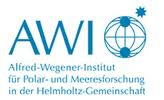Seal and killer whale work is expensive! Foraging ecology studies aided by satellite-linked tracking is particularly demanding on our limited budget. Yet it is central to addressing many of our research questions and assisting our conservation efforts.
BUYING OUR ACCLAIMED BOOK HELPS US RAISE FUNDS! Visit the shop page!
Buying gorgeous ART also helps! Visit the ART page!
ALTERNATIVELY, WE APPRECIATE DONATIONS BIG OR SMALL! Donations can be securely transacted through our University of Pretoria endorsed Give 'n Gain link (on the right of this page) and individuals or companies that require tax certificates for their not-for-profit donations can contact us.
The National Research Foundation of South Africa is the vehicle through which the Department of Science and Technology provide research funding and permission to do the work we do at Marion Island. There are close links with the South African National Antarctic Programme (embedded within the Department of Environmental Affairs) that provides logistical support for field personnel and access to and from Marion Island.
The University of Pretoria provides support to the principal investigators and their postgraduate students, through the use of institutional infrastructure, salaries, bursaries and other academic support.
-----------------------------------------------------------------------------------------------------------------------------------------------------------------------
CURRENT COLLABORATORS





























